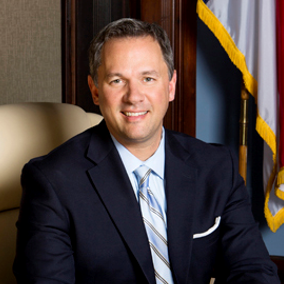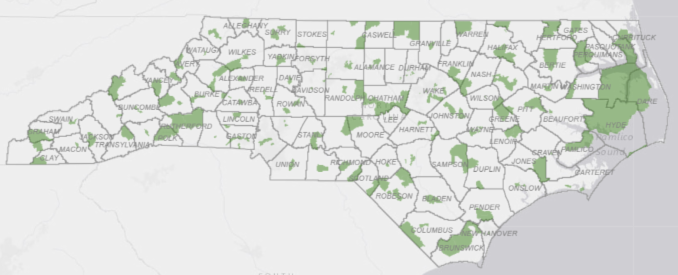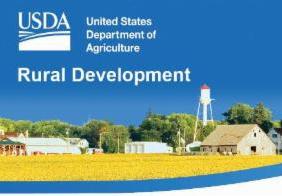|
IT'S TIME TO GET TO WORK.
|
|
On Monday, April 16, at Wayne Community College in Goldsboro, surrounded by community leaders in Wayne County, Patrick Woodie and I blew out the candles on a cake with great big candles marking "8-0." I am not sure if I'll ever get to my 80th birthday, but I sure can say it was a great feeling to mark the end of our year-long journey across North Carolina.
That feeling didn't come from exhaustion, even though it was there. We logged a good number of miles visiting the 80 rural counties in North Carolina (if you want to take a guess on how many, see details about our
current contest below). And, we have spent most of this year on the road, making sure to finish the tour in advance of
Rural Day on May 29. Patrick and I
were
tired, but that's not why we were glad to finish the tour.
That feeling came from excitement about what lies ahead. The voices from the hundreds of people who have joined us in these meetings have been ringing in my head for the past year. We have heard wonderful stories of resilience, of hope, of commitment to communities. We have also heard pleas of those who have been struggling with systemic economic development challenges for decades and are desperate to be heard.
Over and over again, we've heard about the need for access to high-speed broadband, quality health care, modernized infrastructure, and future-proof education.
It has been important for us to stay focused on listening during the Road Trip, but I was glad to blow out the candles because after a year of listening, I'm ready to get to work.
Here's what's next: we are going to celebrate together at
Rural Day, while learning from experts and state leaders about the most challenging issues we face. Later this summer, we are going to release a compendium of the lessons we learned during the Rural Road Trip. Then, we are going to roll up our sleeves and get to work on finding
statewide solutions.
For all those I met over the past year in the 80 county tour, let me say this: I hear you. The Rural Center is here to work with you and to follow you into a brighter future.
For everyone reading this, whether we have met yet or not, let me add: we need you. The challenges we face are going to require us to work together across many lines. We must break down the notion that we can no longer work together across rural/urban lines, or across party, race, class, or geography. Because what we have heard on the Rural Road Trip are not political issues. They are human issues. They are family issues. They are community issues. And their solutions require the work of us all.
My sleeves are up. Are yours? 'Cause it's time to get to work.
John Coggin
Director of Advocacy
|
MAY 29, 2018
REGISTER NOW!
Register now for the second-annual
Rural Day, taking place on
Tuesday, May 29, at the NC Museum of History in Raleigh.
If you want a ticket, please don't delay.
Over half the seats are filled, and the rest are going quickly!
Join the Rural Center and hundreds of advocates from across the state to
LEARN about the issues facing our rural communities,
ENGAGE with leaders about solutions to help us all flourish, and
CELEBRATE all that makes rural North Carolina strong.
Rural Day Speakers
This year Rural Day will focus on three top challenges we heard on the Rural Road Trip: broadband, health, and small business development. Confirmed speakers include:
Special Guests:
Roy Cooper, NC
Governor 
Dan Forest, NC Lieutenant Governor
Broadband Speakers:
Curtis Wynn, CEO, Roanoke Electric Cooperative
Harry Brown, NC Senator
Robert Reives II, NC Representative
Jeffrey Sural, Director, NC Broadband Infrastructure Office
Eric Cramer, CEO, Wilkes Communications
Susan Myers, Managing Partner, Eastern Carolina Broadband
Health Speakers:
Laura Gerald, President, Kate B. Reynolds Charitable Trust
Josh Stein, NC Attorney General
David Lewis,
NC Representative
Mandy Cohen
, Secretary, NC Department of Health and Human Services
Dana Weston
, President & CEO, UNC Rockingham Health Care
Shelbourn Stevens, President, Novant Health Brunswick
Carla Obiol, Executive Director, Care4Carolina
Small Business Speakers:
Christopher Chung, CEO, NC Economic Development Partnership
Napoleon Wallace
, Deputy Secretary, NC Department of Commerce
...and with a special announcement from the NC Rural Center!
Art of Rural Reception
The day doesn't end with the convocation! Stick around to enjoy a reception celebrating the role of the arts in economic development. Catch up with friends, meet other advocates, and talk with artists and economic developers from across the state who are utilizing art to spark downtown development, economic growth, and community revitalization.
Legislative Visits - May 30
We encourage you to stay in Raleigh on Wednesday, May 30, to schedule time with your elected officials. Let them know what you learned on Rural Day and why these issues matter for your family, your business, and your town.
Maximize Your Advocacy!
The General Assembly will be in a short session this year, which means we have a compressed schedule for advocacy. In an attempt to combine forces (and make life easier on you!) the Rural Center, NC League of Municipalities, and NC Association of County Commissioners are hosting our 2018 statewide advocacy gatherings within a two-day period. If you are affiliated with NCLM or NCACC, we encourage you to make just one trip to Raleigh in May and double (or triple) your advocacy power.
Questions?
For questions about sponsorship opportunities, please contact Liz McFarlane, director of philanthropy, at
[email protected].
|
 RURAL ROAD TRIP UPDATE RURAL ROAD TRIP UPDATE
Guess how many miles we traveled!
The Rural Road Trip is officially complete! Thank you to everyone who attended our community meetings over the course of the past year. We now begin the process of pulling together everything we have heard. This summer, we will release a compendium of stories and lessons from the Rural Road Trip, and then we will be actively engaging you to find solutions for statewide challenges.
In the meantime, we have a challenge for YOU!
How many miles did Patrick Woodie and John Coggin travel in their quest to visit with leaders in all 80 counties?
Post your best guess on our
Facebook,
Twitter, or
Instagram pages. The closest guess will win a free ticket to Rural Day.
The winner will be announced on May 7, so put in your guess today!
|

ICYMI: RURAL COUNTS SPRING WEBINAR
The Master Plan for Water & Wastewater Infrastructure
Last month, the Rural Center welcomed experts from the NC State Water Infrastructure Authority to tell us more about the new
State Water and Wastewater Infrastructure Master Plan. That
holistic look at the challenges facing public water and wastewater utilities revealed that the state must also help utilities address the organizational and financial management challenges that may contribute to their physical infrastructure limitations.
If you missed the live webinar, a recording is available on our website and YouTube channel. Check out the webinar for an in-depth look at the state of our state's water systems and helpful hints for overcoming common challenges.
|
 POLICY UPDATES POLICY UPDATES
|
 DISPATCHES FROM DC DISPATCHES FROM DC
Updates on Farm Bill & Broadband

Make sure to bookmark our
Dispatches from DC
page on the Rural Center website to keep up with what is happening in our nation's capital and why it matters for rural North Carolina.
Start by reading our latest update on
Farm Bill Reauthorization, which will have important consequences for agriculture, broadband, health care, rural community development, and food programs.
We have also provided an overview of the variety of proposals focused on
broadband, coming from Congress, the White House, and the FCC.
Follow us on
Twitter, for up-to-the-minute notice of when new updates are posted!
|

RURAL HEALTH ACCESS
NCGA Committee Releases Report on Policy Proposals
The Legislative Research Commission of the NC General Assembly charged a special Committee on Access to Healthcare in Rural North Carolina to meet four times in 2018 to "study issues surrounding access rural communities in North Carolina have to health care" and produce a report recommending potential solutions.
Report Overview
On April 12, the committee released a draft report with initial recommendations. The
full report can be found on the NCGA website, and a summary of the recommendations are listed below.
Recommendation 1: Identify options for enhancements to graduate medical education funding in rural areas to achieve the state's objectives.
Recommendation 2: Identify rural hospitals that desire to be designated as teaching hospitals by the Centers for Medicare and Medicaid Services.
Recommendation 3: Additional funding for Southern Regional AHEC and the Eastern AHEC.
Recommendation 4: Increase funding for loan repayment program and target to rural health providers.
Recommendation 5: Study State Health Plan and state Medicaid program to increase preventative health services, improve health outcomes, and lower cost of care.
Recommendation 6: Support for implementation of a statutory framework for telemedicine in North Carolina and to require further study of issues related to telemedicine.
Rural Center Analysis
The Rural Center applauds the work of this Committee and believes implementing its recommendations will be a big step forward to access to quality care in rural North Carolina. Rural Center Director of Advocacy John Coggin presented to the committee in its first meeting, and many of the recommendations he made are reflected in the draft report. These include: supporting North Carolina's AHECs, increasing loan repayment programs, and implementing the suggested policies of the telemedicine report submitted by DHHS to the Joint Legislative Oversight Committee on Health and Human Services.
Other recommendations the Rural Center made to the committee, most especially closing the health insurance gap and expanding broadband infrastructure in rural unserved areas of the state, were not recommended by this committee. Still, we look forward to working with members of the General Assembly on these issues, which we believe are critical to the success of the other committee recommendations.
|

OPPORTUNITY ZONES
NC submits census tracts from all 100 counties for new federal program
One of the most talked-about aspects of the new tax reform bill (The Tax Cuts and Jobs Act) that passed Congress last year is the new Opportunity Zones program.
This program seeks to attract new investment capital into low-income areas by inviting states to identify census tracts that will serve as "Opportunity Zones." These zones will give tax benefits to investors who invest unrealized capital gains in the areas.
Over the past two months, the Rural Center has been working with the NC Department of Commerce and local partners across the state to lift up rural census tracts that are primed for this type of investment. Only 25 percent of eligible tracts could be identified as Opportunity Zones, and we took seriously the charge to maximize the rural impact of this program.
The Governor's Office just unveiled its nominated census tracts, and we are pleased to report that there is at least one census tract marked as an Opportunity Zone in each of the state's 100 counties. It is now up to the US Treasury to certify the zones nominated by the states.
While we are pleased that every county will likely get a chance to reap the benefits of this program, the Rural Center does not take an "if you build it, they will come" approach to Opportunity Zones. In order for this program to work anywhere, concerted effort must be taken at the state and local levels to call attention to these zones and enhance the tax incentives with other tangible benefits for investors. We will be actively working with local and state leaders, once the zones are approved, to make this program as effective as possible for our rural counties.
|
 |
 |

WEBINAR: USDA DISTANCE LEARNING & TELEMEDICINE GRANT PROGRAM
USDA Rural Development will host a webinar today (
Wednesday, April 25) at 1:00 p.m. on eligibility rules and application requirements for the Distance Learning and Telemedicine (DLT) Grant Program. Experienced USDA staff will provide detailed guidance on how to submit a successful application.
You can register for today's session
here. We recommend you do this registration early and run a system check to ensure quick access before the webinar starts.
|

WEBINAR: MEDICAID TRANSFORMATION 101
Wednesday, May 2 @ 3:00 p.m.
Ever wonder what the heck a PHP of PLE is? Maybe you don't even care and just want to understand how North Carolina's Medicaid Transformation could impact kids. NC Child has answers. Executive Director Michelle Hughes and Deputy Director Rob Thompson will cover the basics of Medicaid Transformation using a minimal amount of acronyms and wonk.
The webinar will take place on Wednesday, May 2, from 3:00 - 4:00 p.m. Register here.
|
NC BROADBAND OFFICE RELEASES BROADBAND PLAYBOOK
Eric Boyette, secretary of the North Carolina Department of Information Technology (DIT) and state chief information officer, recently announced the launch of the Community Broadband Playbook.
The Community Broadband Playbook, developed in NC DIT's Broadband Infrastructure Office (BIO), provides communities with functional tools including templates, examples, ideas, and many more resources that communities can use to build a broadband strategy that addresses their needs.
"The environment of demand for broadband is a moving target. Developing a playbook that grows and adapts alongside the need for higher speeds and bandwidth is essential for supporting local leaders," said Jeff Sural, director of the Broadband Infrastructure Office.
The Playbook was created using the Broadband Planning Primer and Toolkit developed by the Appalachian Regional Commission in Partnership with the Broadband Infrastructure Office.
This tool works in unison with the BIO's technical assistance team, which operates as an on-the-ground resource for helping communities build strategies that work for their specific needs.
|
ORAL HEALTH AMERICA'S 2018 "A STATE OF DECAY" REPORT
On April 17th, at the National Oral Health Conference in Louisville, KY, Oral Health America released its 2018 State of Decay Report. Links to the latest volume, and earlier editions, of the report can be viewed on
astateofdecay.org.
This report examines factors impacting oral health of older adults while illustrating progress in some areas and the need for continued action to ensure America's rapidly growing population of seniors age healthily and independently.
|
USDA CALLS FOR RURAL BEST PRACTICES IN ADDRESSING OPIOID CRISIS
Last month, Assistant to the Secretary for Rural Development Anne Hazlett unveiled a new interactive feature on the United States Department of Agriculture's (USDA) rural opioid misuse
webpage
. Now, webpage visitors can tell USDA what prevention, treatment, and recovery actions have been effective in addressing the opioid epidemic in their rural communities. USDA is collecting this information as part of an ongoing effort to identify best practices and effective strategies for addressing rural opioid misuse.
"Rural America has been hard hit by opioid misuse," Hazlett said. "The challenges for our small towns and rural places in developing effective responses to this crisis are unique. There are rural leaders effectively addressing this challenge, and USDA wants to help replicate these actions in more rural communities."
The National Center for Health Statistics estimates that more than 63,000 Americans died from drug overdoses in 2016. More than half of those deaths involved opioids, including prescription drugs and heroin.
USDA is an important partner to rural communities addressing this national problem. The Department is investing in treatment facilities and services, e-Connectivity and telemedicine, and public education efforts. In addition to program investment, USDA is helping communities share information about best practices to address the crisis.
Information collected from this new webpage feature will be used to create an interactive resource for communities looking to address the opioid crisis on the local level.
In April 2017, President Donald J. Trump established the Interagency Task Force on Agriculture and Rural Prosperity to identify legislative, regulatory, and policy changes that could promote agriculture and prosperity in rural communities. In January 2018, Secretary Perdue presented the Task Force's findings to President Trump, which included 31 recommendations to align the federal government with state, local, and tribal governments to take advantage of opportunities that exist in rural America.
In the area of quality of life, the Task Force included a recommendation to modernize health care access. The report highlighted the importance of telemedicine in enhancing access to primary care and specialty providers. The Task Force also found that improved access to mental and behavioral health care, particularly prevention, treatment and recovery resources, is vital to addressing the opioid crisis and other substance misuse in rural communities.
USDA Rural Development provides loans and grants to help expand economic opportunities and create jobs in rural areas. This assistance supports infrastructure improvements; business development; housing; community services such as schools, public safety, and health care; and high-speed internet access in rural areas.
|
|